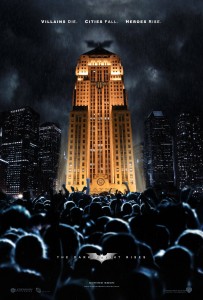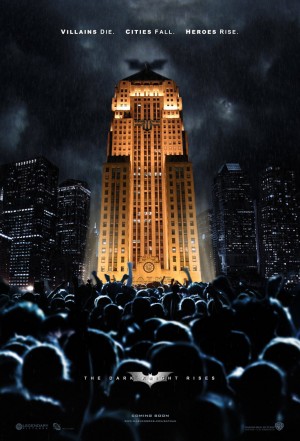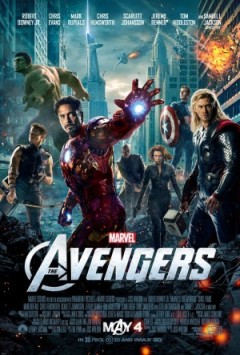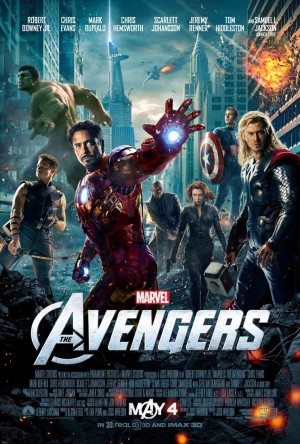

Before the third of the Batman trilogy hit theaters, I had heard that The Dark Knight Rises was a film without hope, with a long and dreary narrative that never loosens its grip. It leaves the viewer without a sense of answers.
I saw it and left confused. It saw it again, and left confused again. All the while, I kept wondering if this interpretive effort would pay off. Maybe it’s just another movie and lacks the ideological significance of the previous two.
I too had read several reviews that had condemned the film from a left-wing point view, arguing that it took a cheap shot at the Occupy Wall Street movement, suggesting that it consists mainly of brainless menaces who are easily manipulated by a strongman leader. The filmmakers deny this.
Regardless, this was probably the best political feature of the film.
However, the merit of its warning about left-wing populism was seriously compromised by the portrayal of the Gotham cops as saintly guardians of the social order. Neoconservatives loved this part of the film, made all the better to them because the prisons are full and Gotham is ruled by a civilian-led authoritarian regime of tight law and surveillance — the neocon dream come true.
What’s going on here? Why is the movie so full of mixed messages and, in the end, so unsatisfying?
Finally, it hit me. And this will be perfectly obvious once you hear it.
The problem is that the film gives Gotham (and us) a choice between two forms of despotism, one “left wing” and one “right wing,” and asks us to choose the lesser of two evils. We can have one of two systems: bureaucratic/authoritarian or revolutionary/dictatorial. The idea of a self-managing society is just out of the question. The film biases that choice by showing one as offered by the evil villain and the other by a corrupt, yet stable status quo.
[continue reading…]
Help Promote Prometheus Unbound by Sharing this Post


Mild Spoilers
Hans Zimmer has composed an unrelenting score that is being blasted in movie theaters across the world right now. It is not bad music by any means, but why it is launched like an assault at the eardrums I cannot fathom. Underneath this score, if one listens carefully, one can hear a movie playing, accompanied by corresponding images on a screen. The movie is called The Dark Knight Rises, and it is considered a part of Christopher Nolan’s Batman trilogy on the grounds that Batman makes a couple brief appearances in it.
It takes place eight years after the previous installment. Batman, erroneously believed to be the murderer of Harvey Dent, has disappeared, and his alter ego, billionaire Bruce Wayne, now lives as a recluse. A new super villain, Bane (Tom Hardy), has emerged to wreak havoc in Gotham City. Catwoman (Anne Hathaway) is also on the prowl, though whether she is a villain or heroine is less certain until the end of the film.
Bruce Wayne is moved to return the Caped Crusader to the streets of Gotham City as the Bane menace grows. He is pushed to this decision by a police officer with amazing faith in his pure hunch that Bruce Wayne is somehow connected to Batman, as well as the theft of his belongings and personal information by Catwoman, who was working for him as a maid in order to position herself for the strike, and who was helped along by an assistant we never really get to know, but both of them are radical egalitarians with some connection to Bane, who it turns out was behind the guy who hired Catwoman to burgle Bruce Wayne because he wants the information to set Wayne up so that he can financially ruin Wayne so that his people can take over Wayne Enterprises in the ensuing bankruptcy so that he, because he knows who Batman is, can get access to Batman’s arsenal so he can use it to further his plans to…
You know, it’s actually a little complicated. Much like its predecessor. Indeed, the movie shares all of its predecessor’s flaws but got shortchanged on the strengths.
[continue reading…]
Help Promote Prometheus Unbound by Sharing this Post


After a series of movies about individual superheroes, movies that gave us their origin stories, we have finally been treated to the culmination of the last few years and so many millions of man-hours: The Avengers. The films leading up to it were generally fair to middling, I thought, with the first Iron Man rising maybe half a skosh above that level. The latest comes heralded by uniformly positive reviews. It is, we are told, much better than one would expect. According to most reviews, there is a greater focus on character than one usually gets in an action movie, but there is no skimping on set pieces. The reality, for me, was more of the same: half a skosh above decent.
Loki, Thor’s brother and fellow god, wants to rule the Earth. He makes a deal with some aliens who agree to conquer the Earth for him in exchange for the Tessaract, an artifact of immense power, which will also play a role in transporting the invading army to New York to begin the takeover. Loki steals the Tessaract from Nick Fury, who then assembles the Avengers to find him, find it, find out what the plan is, and do anything else that needs a little superpower elbow grease. A lot of bickering between incompatible personalities and a whole lot of violence and destruction ensue.
The plot is unremarkable but perfectly adequate, and that is a good description for the movie as a whole. There are no scenes whose impact lingers in your memory after the credits have rolled, no wonderful development of character, no stunning visuals, no lines of great insight, no “aha!” moments. What it does have, to go with its serviceable story, is competent direction, a few genuinely amusing visual jokes, a bevy of one-liners that play well to an opening-weekend audience, and the action set pieces that many movie goers — mostly male — crave sometimes to the exclusion of all else.
[continue reading…]
Help Promote Prometheus Unbound by Sharing this Post












